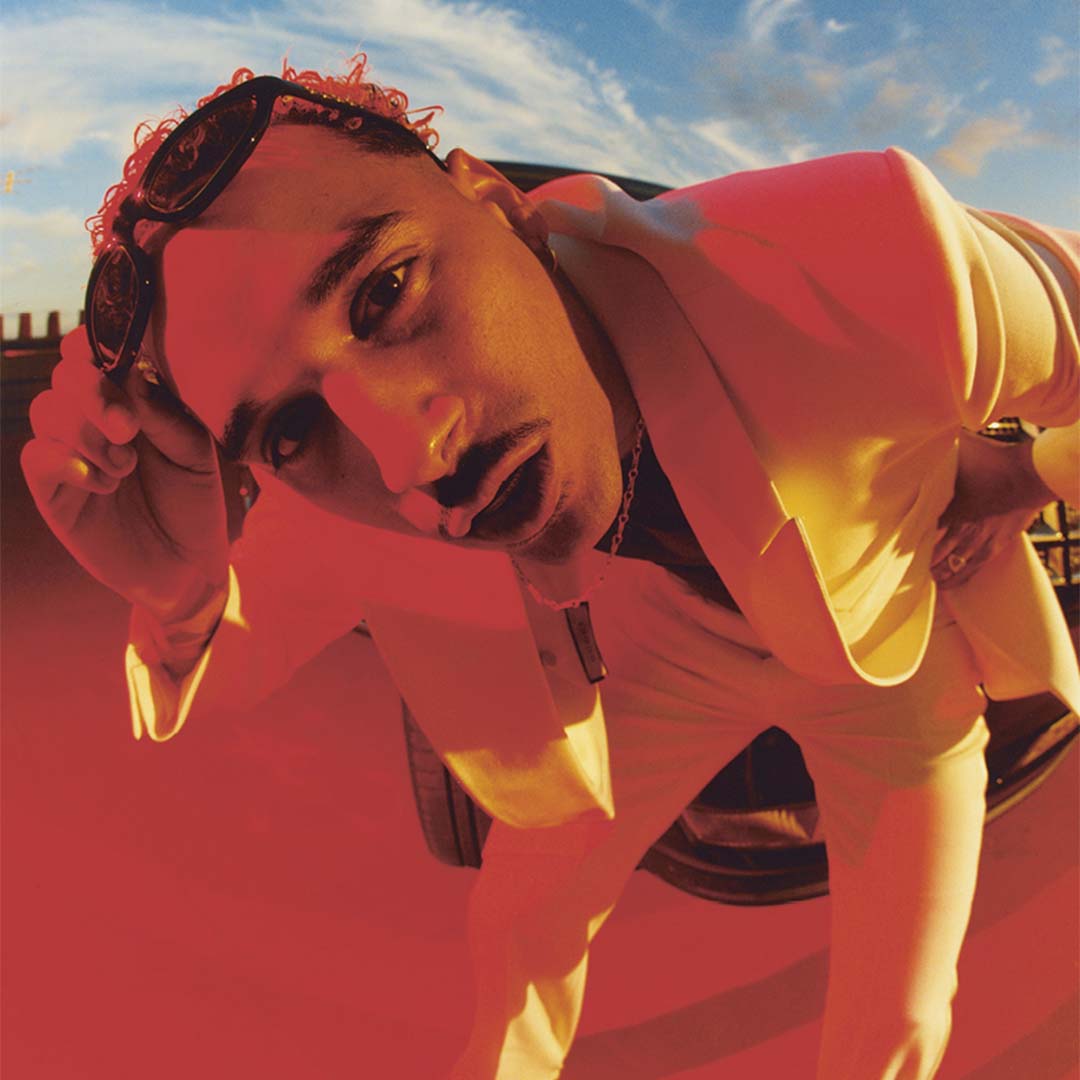
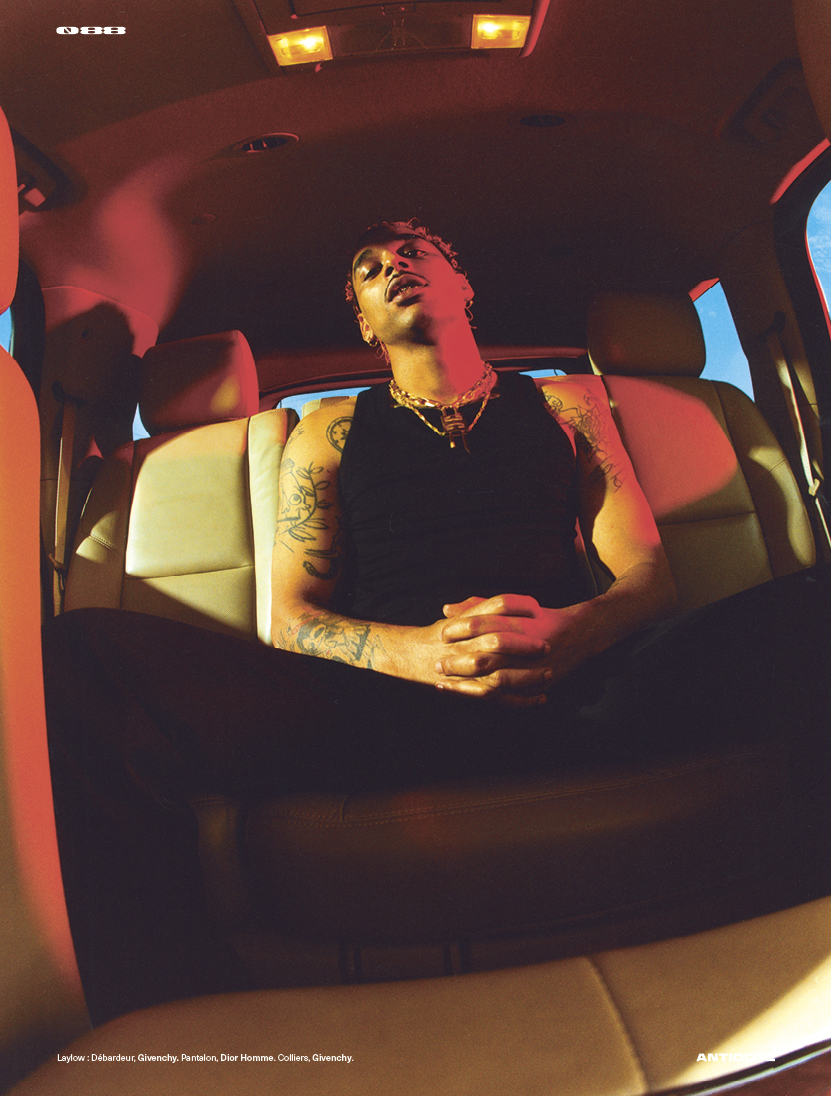 Laylow: Tank top, Givenchy. Pants, Dior Homme. Necklaces, Givenchy.
Laylow: Tank top, Givenchy. Pants, Dior Homme. Necklaces, Givenchy.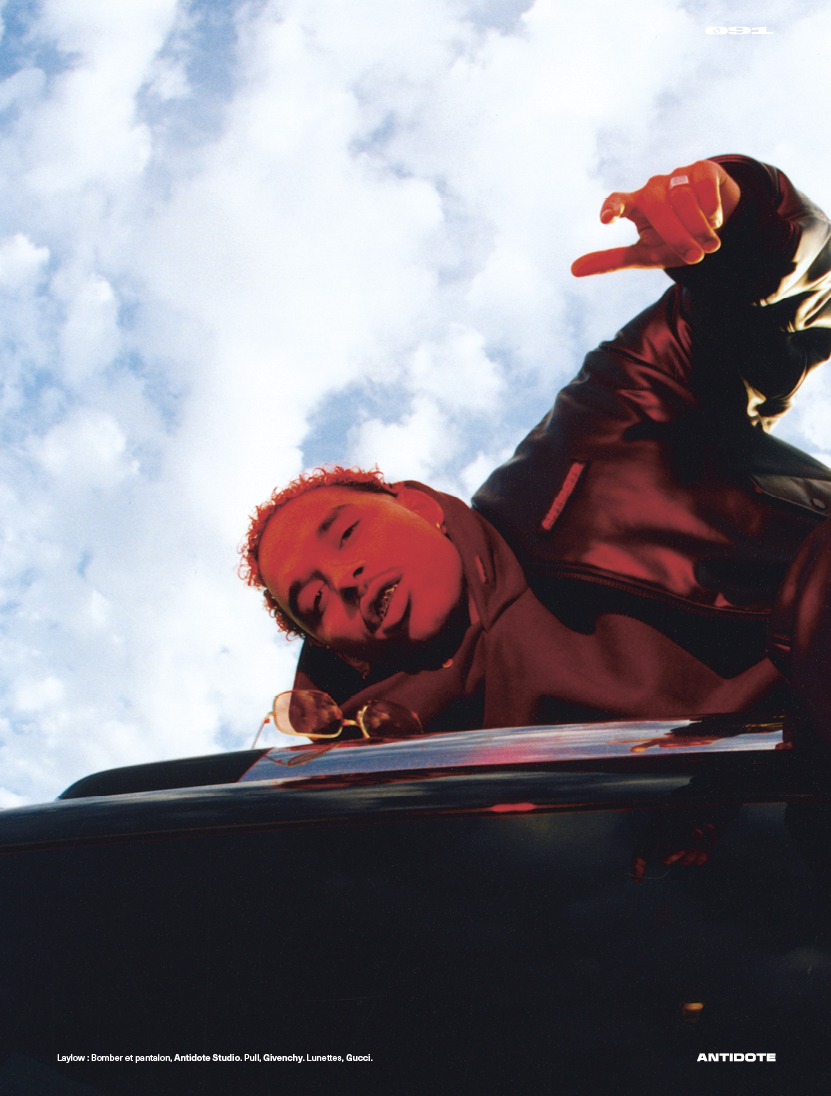 Laylow: Bomber and pants, Antidote Studio. Sweater, Givenchy. Glasses, Gucci.
Laylow: Bomber and pants, Antidote Studio. Sweater, Givenchy. Glasses, Gucci.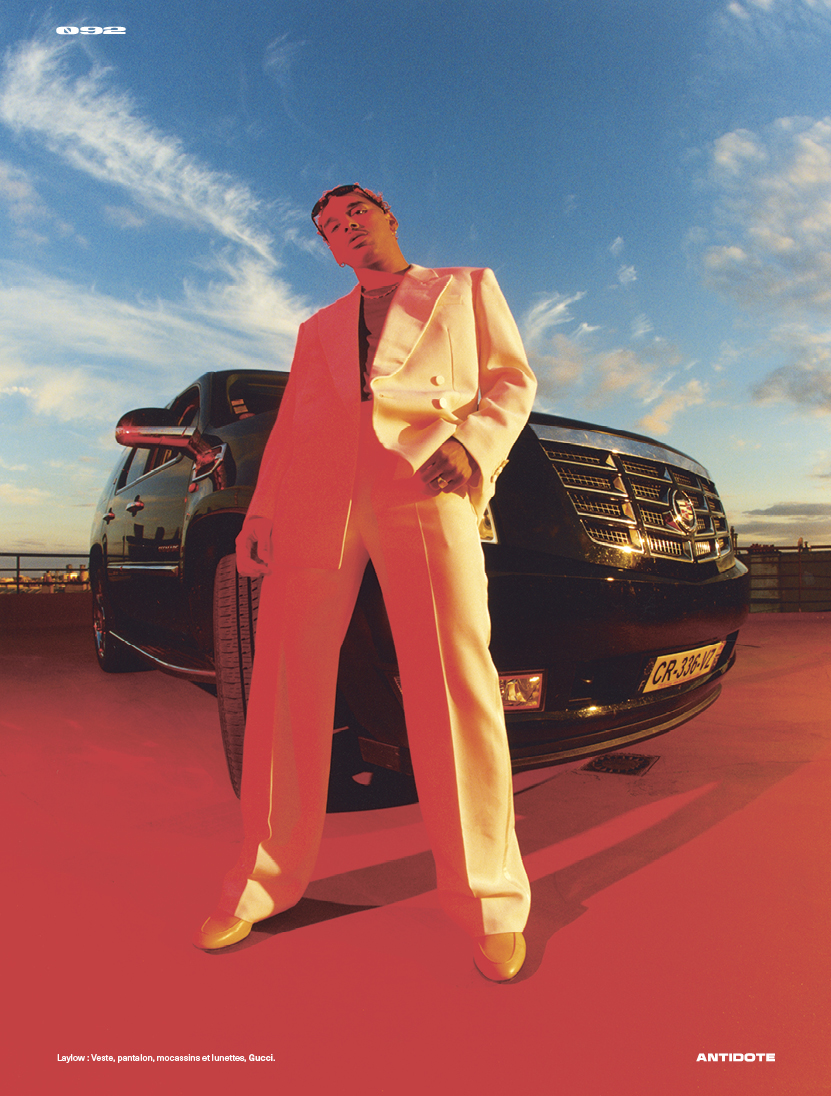 Laylow: Jacket, pants, loafers and glasses, Gucci.
Laylow: Jacket, pants, loafers and glasses, Gucci.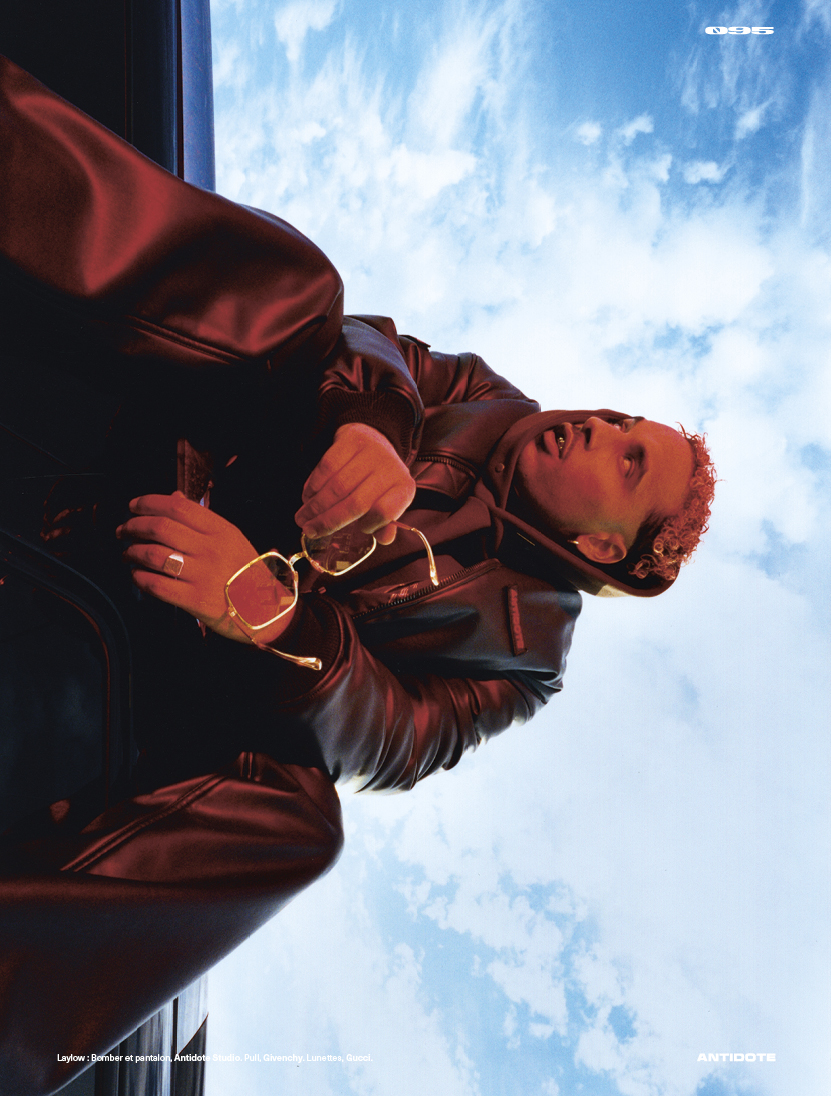 Laylow: Bomber and pants, Antidote Studio. Sweater, Givenchy. Glasses, Gucci.
Laylow: Bomber and pants, Antidote Studio. Sweater, Givenchy. Glasses, Gucci.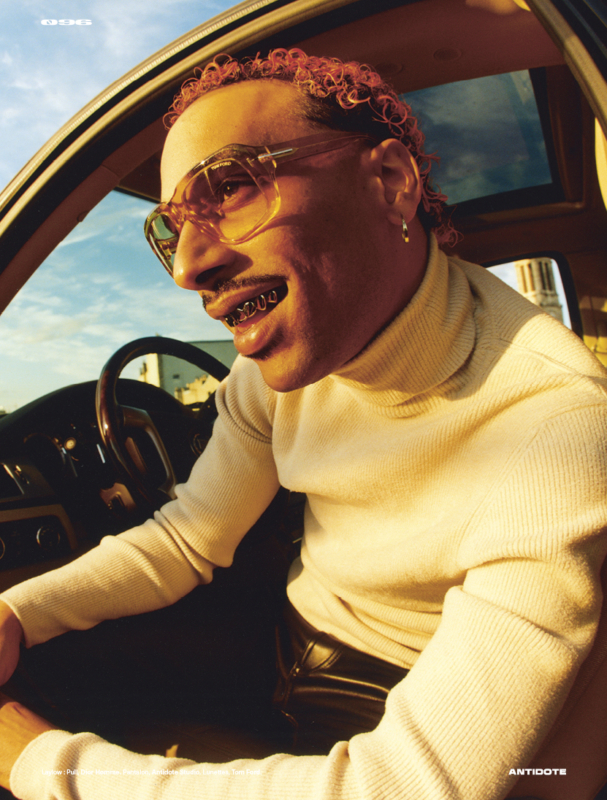 Laylow: Turtleneck, Dior Homme. Pants, Antidote Studio. Glasses, Tom Ford.
Laylow: Turtleneck, Dior Homme. Pants, Antidote Studio. Glasses, Tom Ford.